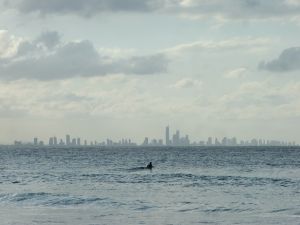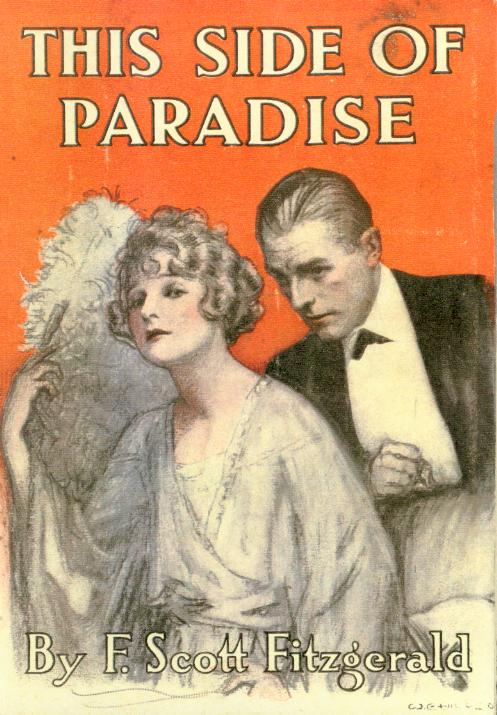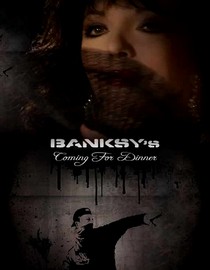Amory Blaine could possibly be the original Occupy Wall Street protestor.
While This Side of Paradise is one of F. Scott Fitzgerald’s lesser known works—due primarily with grammatical and spelling errors not corrected by the publishers (Fitzgerald and Hemingway were infamously known as horrible spellers) and because Fitzgerald was only twenty-three when This Side of Paradise was published and wrote it primarily to win over a girls’ “financial” heart, i.e. Zelda Sayre; still the book presupposes much of the genius that Fitzgerald would later embody in his works like The Great Gatsby. More importantly, though, This Side of Paradise is perhaps one of the best blue prints for modern youth culture that still retains pertinence to this day.
Set during and a couple of years after the First World War, This Side of Paradise tells the story of young Amory Blaine, one of the most autobiographical characters in modern literature. Blaine is Fitzgerald’s doppelganger, and many critics over the years have pointed out this being the problem with the novel: Fitzgerald, unable to detach himself from Blaine, does not show an objective progression of his characters and thus compromises the reliability of his narrative structure. But, examining the reasons why Fitzgerald wrote the book in the first place, it seems almost necessary, if not inevitable, that the reliability be compromised.
 For one, this is a novel about youth and how the individual will interact with the world around him/her when the common mores and societal rules have been thrown out the door, or, as the narrator describes, when the youth culture had “grown up to find all gods dead, all wars fought, all faiths in men shaken.” In a literal interpretation, one would see the final scene in Book Two of This Side of Paradise, aptly called The Education of a Personage, as a proclamation of Fitzgerald for a socialist state when Amory Blaine argues with men of an obvious conservative and industrialist background that because of Blaine’s lost youth (i.e. Post-WWI mentality) and unrealized dreams that society’s “phallic worship” of materialism had led to the fall of society and isolation of the individual.
For one, this is a novel about youth and how the individual will interact with the world around him/her when the common mores and societal rules have been thrown out the door, or, as the narrator describes, when the youth culture had “grown up to find all gods dead, all wars fought, all faiths in men shaken.” In a literal interpretation, one would see the final scene in Book Two of This Side of Paradise, aptly called The Education of a Personage, as a proclamation of Fitzgerald for a socialist state when Amory Blaine argues with men of an obvious conservative and industrialist background that because of Blaine’s lost youth (i.e. Post-WWI mentality) and unrealized dreams that society’s “phallic worship” of materialism had led to the fall of society and isolation of the individual.
Such a synopsis doesn’t sound all that unfamiliar with what is occurring today. This current generation inheriting their parents’, or the Baby Boomer’s, faults and mishaps in thought and application has led to the 21st-century decline in, as Blaine and Fitzgerald would describe it, the personage of mankind. Rather, if we are to interpret current affairs through the lens of This Side of Paradise, we have fallen to the prey of materialist pursuits while neglecting the soul of our society—note here that I do not mean a literal soul, if there even is one, but rather an abstract, metaphorical soul behind the gloss, spectacle, and appearances (i.e. a philosophical soul, as pretentious as that sounds).
I don’t believe that Fitzgerald was truly arguing for socialism by the end of This Side of Paradise. Instead, I believe he was commenting on the loss of something precious that he focuses on throughout the book. While at times he calls this lost thing youth, dreams, aspirations, and on and on, it appears that what he actually means in a grasp of identity. Fitzgerald, as a young man, just like Amory Blaine as a young man, just like my generation as a young generation, does not know who or what it is, but sees that what the previous guard or generation did was wrong, did not help, and only led to destruction, war, and despair of the individual. Precisely because Fitzgerald was so young when he wrote This Side of Paradise, there is no grand scheme or solution to all the world’s problems, or even his own problems to say the least. Rather, it is Fitzgerald’s youthful attempt to grasp why he going through the motions of life and what meaning he can scavenge from the wreckage of his age.
The other reason I would recommend this book is because it sets of The Great Gatsby and allows any reader to understand the transitional mentality that led from one book to the next. Fitzgerald, out of the Modern expatriates, is perhaps one of the greatest, and certainly one of the best in American literature. While complex and difficult at intervals, Fitzgerald’s precocious use of language and style is exemplified in This Side of Paradise as identifiably one of the best experimental works of any author during their twenties. So, for whatever reason that you may read this book, if you do indeed go on to read it, I do implore you to keep in mind the general context and themes that recur so often into even almost a hundred years after its publication.
This Side of Paradise,




